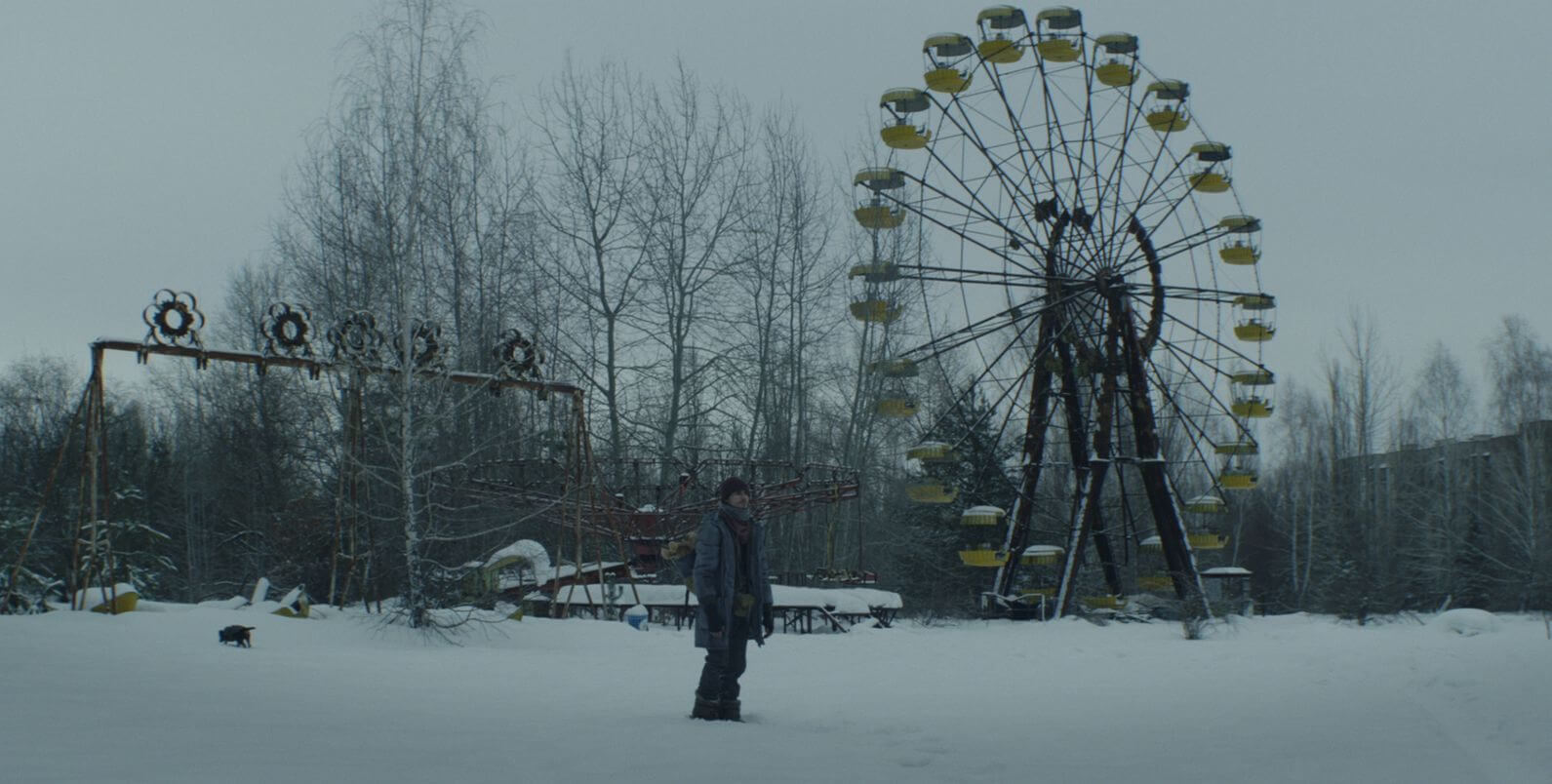Who or what motivated you to pursue filmmaking?
The first memory I have regarding movies is when my mother took me to see E.T. I was a hyperactive 4-year-old kid. The only activity that could focus my attention was watching movies. We used to watch a lot of movies at home because my mother is a big movie fan. There are two film masters that clearly marked my childhood: Alfred Hitchcock and Steven Spielberg. I started watching their films from a very early age and learned my first cinema lessons, many years before starting any type of theoretical study. Still today I can remember the huge impact "Rear Window" or "Jaws" had on me when I watched them for the first time. No doubt both filmmakers have been a clear influence on the kind of narrative I feel more comfortable with as a director. Following that same line, another work that marked me also was "The Silence of the Lambs" by Jonathan Demme. During my teenage years, I discovered the work of other great directors who showed me "a different kind of cinema" and who also motivated me to start my university studies. "Blue Velvet" by David Lynch and "A Clockwork Orange" by Kubrick taught me a taste for complex and dark characters as well as for the creation of dreamlike or strange universes that coexist naturally within a near and recognizable reality. In my time as a university student, my interest for European auteur films grew, with Antonioni's "Blow-up" being one of the films that marked me the most. I learned how the same theme could involve each and every one of the scenes of the film and sublimate into a final thesis that conveyed a strong moral message. Lars Von Trier's "Breaking the Waves", Leos Carax's “Les Amants du Pont Neuf", Gaspar Noe's "Irreversible", Polanski's "Rosemary's Baby" or Haneke's "Funny Games" influenced me especially in my years as a student.
How does your film primarily differentiate or distinguish itself from other work?
I think Graffiti is a very unique and different piece for several reasons, but perhaps the most striking one is that it was shot in the abandoned town of Pripyat, near Chernobyl's nuclear power plant in Ukraine. It is an amazing and unique place in the world, as it has remained intact and uninhabited for nearly 30 years since the accident that caused the evacuation and closure of the nuclear plant. It is quite complicated to get into Pripyat to shoot a film due to the security measures that need to be taken in the "exclusion zone". Graffiti is the first film production to be filmed entirely within the "exclusion zone". Personally, to be able to film Graffiti in Pripyat was a dream come true, as I dreamed of doing something there for years. A crew of ten members, including the actor, went to Pripyat. We stayed there for 6 days, the first one scouting and then shooting all the exteriors, the rooftops, and few interiors. It was a tough and intense shooting, with no artificial lighting and no logistic support, but with a Red Epic camera plus anamorphic lenses. It was the perfect mix between a professional shooting and the "guerrilla" attitude since all of us did all sorts of tasks. It was a real challenge and for sure the shoot I have the best souvenir from.
What's the best advice you've received?
I think that if you are convinced about telling a story and you have a clear vision about how to make it, you have to fight to get it the way you dreamed it. No matter how complicated or impossible it looks, there is always a way to find the right partners to make it possible. On the other hand, one of the few things I remember from my time as a film student was a teacher's motto: "Less is more". I believe that I have tried to guide myself by that phrase and Graffiti is a reflection of it.
Despite its post-apocalyptic setting, you’ve stated that Graffiti is primarily a love story. What were your main influences when creating the film?
I do not feel that Graffiti resembles any other film, although unconsciously it is impossible not to be influenced by other films. Andrei Tarkovsky's "Stalker" inspired me a lot when I saw it for the first time, but also Robert Zemeckis's "Cast Away". But with this said, to write a story, I mostly need to find a topic that touches me personally and that excites me. The film speaks about loneliness, the power of imagination and about faith in love. I found it interesting to set the story in a realistic environment, where the starting point of “Graffiti" could be credible: the world has ended and a single survivor with little hope finds something that will change his life.
There is something at once hopeful and horrible about Edgar’s connection with the mysterious Anna. What are the risks and advantages of telling a story that is open to interpretation?
Life is full of mysteries. So I tried to make a movie that plays with mystery in the broadest sense of the word. It is usual to find countless films that try to explain everything in a very simple and closed way. But I would like to approach a type of filmmaking that raises questions and forces the audience to be active, to think and debate about what they have watched. The films and directors that have marked me the most certainly do not try to simplify everything with an easy and closed answer.
